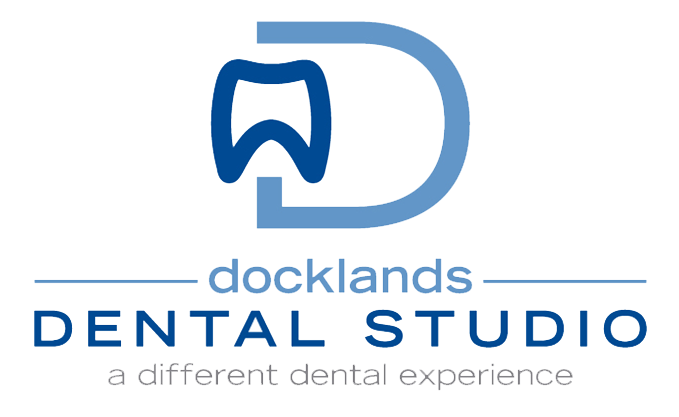We might think of our body health and oral health as separate battlegrounds, but the truth is that they are incredibly connected. We understand now that there is a connection between chronic oral health conditions and heart disease, cancer, diabetes, and arthritis. For example, the same bacteria that causes gum disease, streptococcus mutans, has also been found in arterial plaque—suggesting it may enter the blood stream via bleeding gums and travel to other parts of the body.
Gum disease aside, there are a number of medical conditions that can contribute to dental cavities. In fact, conditions that jeopardize your teeth are so common that most readers of this article will have probably been affected at some point in their lives, or currently know someone who is affected.
Do you need a dentist who values whole-body wellness? Call Docklands Dental Studio today at (03) 9021-9487 for a check-up with one of our dentists. Our dental practice serves Port Melbourne, North Melbourne, Melbourne, and Southbank.
If you have a condition from this list, speak with your dentist at Docklands Dental Studio to understand the risks to your oral health and the best way to prevent cavities. In many cases, there are preventive treatments that may counteract an increased risk.
Acid Reflux
Gastroesophageal reflux disease (GERD) is a common condition in which stomach acids travel up the esophagus. Not everyone who experiences heartburn has GERD, but diagnoses have increased in recent years as more and more sufferers seek treatment. Aside from causing pain, the stomach acids in question also migrate to the mouth. You may not be aware this is happening because saliva dilutes the acid, but its constant presence is enough to erode your enamel, leaving molars especially vulnerable to “top-down” decay.
Diabetes
Most people with diabetes control their blood sugar with the help of medication. However, if blood sugar is not adequately controlled, high glucose levels in saliva may actually cause mouth bacteria to thrive. This means more plaque and tartar on the teeth and more opportunity for cavities to form.
Thyroid Disorders
Both hyper- and hypothyroidism can lead to oral health problems. The thyroid gland is responsible for producing the hormone thyroxine, which regulates metabolism. One of the symptoms of an over- or underactive thyroid is that it affects the body’s systemic response to bacteria, which can manifest itself in gum inflammation and fast-moving tooth decay.
Eating Disorders
In addition to wreaking havoc on the body, eating disorders, such as anorexia and bulimia, also contribute to oral health problems. To start with, if you are not getting the nutrition you need, you will not have the minerals needed to support healthy gums and teeth. Sores and lesions in the mouth are also common when you are poorly nourished. Bulimia is particularly damaging to enamel, as constant vomiting brings your teeth in contact with corrosive stomach acids. As enamel erodes, cavities form with less resistance and decay spreads more quickly than in healthy mouths. Other eating disorders have uniquely negative effects on the mouth, as well. Overeating, or compulsive eating, can contribute to cavities in the sense that more food passing through the mouth equals more plaque and tartar accumulating on the teeth.
Hormonal Changes, Menopause, Pregnancy
For women, hormonal changes accompany all stages of our lives. Puberty, pregnancy, and menopause can all affect the chemistry of our mouths and the pH of saliva. During menopause, nose-diving estrogen levels can lead to dry mouth (see below) which has a devastating effect on your teeth. During pregnancy, women’s gums are quick to swell and bleed, which may make it difficult to brush away plaque well enough to prevent cavities. Those who vomit frequently due to morning sickness are at risk of acid erosion of their enamel, which may contribute to an increase in cavities.
For many women the onset of gum disease happens during this pregnancy or menopause. Although gum disease initially may not cause cavities, as it progresses, gum tissue recedes from the teeth. When this happens, roots become exposed and become suddenly very vulnerable to decay, as they are not covered with protective enamel.
Teeth Grinding (Bruxism)
While not an illness per se, teeth grinding and jaw clenching can lead to worn down enamel and cracked teeth. This type of structural damage to enamel can open the door to the bacteria that cause cavities. Bruxism is frequently a symptom of temporomandibular joint (TMJ) disorder, but can happen in its absence, as well. If you suspect you grind or clench your jaw when you sleep, a well fitting mouth guard can prevent you from damaging your teeth at night.
Dry Mouth (Xerostomia) – A Common Side Effect
We don’t think about it too much, but saliva is nature’s greatest defense against cavities. When we are awake, our salivary glands are constantly producing spit to neutralize bacteria and lubricate our mouths. Saliva production slows at night when we sleep, and the effect on bacterial growth is immediately detectable in our “morning breath.” When you don’t produce enough saliva to keep your mouth wet, you lose your natural protection against the bacteria that cause cavities, making your enamel more prone to decay.
If you’re thinking “I’m glad I don’t have xerostomia!” think again. This condition is most frequently a side effect of medication, and is listed in the precautions for more than 400+ commonly used prescription and OTC medications. If you ever find yourself taking medication for a chronic condition, stay alert for signs of dry mouth. Let your dentist know if you begin to experience dry mouth, as there are a number of products that can counteract its effects.
If you have a medical condition that affects your oral health, call Docklands Dental Studio today at (03) 9021-9487 to meet with one of our dentists. Our dental practice serves Port Melbourne, North Melbourne, Melbourne, and Southbank.
